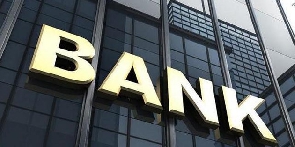 Banks in the country are projected to lose about GH¢6.1 billion due to the DDEP
Banks in the country are projected to lose about GH¢6.1 billion due to the DDEP
About 23 banks in the country are projected to lose about GH¢6.1 billion as a result of the reduced coupon rate and the extension of the maturity period from five to fifteen years.
This is according to an analysis of the Domestic Debt Exchange Programme (DDEP) report.
The analysis of the DDEP by Dr. Richmond Atuahene and K B Frimpong, reported by JoyBusiness and cited by GhanaWeb, highlights that banks would have earned a cash flow of approximately GH¢10.1 billion during the period with an original coupon rate of 19.3% per annum.
The report indicated that the implementation of the DDEP, earnings from investments in Government of Ghana Bonds will be heavily impacted by the extension of maturity period and decrease in coupon rate.
“This liquidity gap is a result of the drop in the average bond rate of 19.3% to weighted average rate of 9% per annum, thus leading to nominal negative liquidity gap of 10.3%. The liquidity gap is expected to get worse if the average customer deposit rate was around 10% per annum, but later declined to weighted average rate of 9% per annum,” the report said.
“For example, Bank A with the bond value of GH¢9, I06,452,000 and average coupon rate of 19.3% would have had cash flow of GH¢1,821,290,000, but with the Domestic Debt Exchange Programme, the effective rate of 9% per annum will cause a drop in cash flow to GH¢720,927,000, thus leading to liquidity gap of GH¢1,100,363,000”, it added.
Meanwhile, an earlier report had disclosed that banks operating in Ghana stand to lose approximately GH¢41.3 billion from the DDEP between 2023 and 2028.
The computation of the Net Present Value (NPV) of the 23 local banks revealed that the losses could tally up to GH¢41.315 billion.
Watch the latest edition of BizTech and Biz Headlines below:
NW/MA